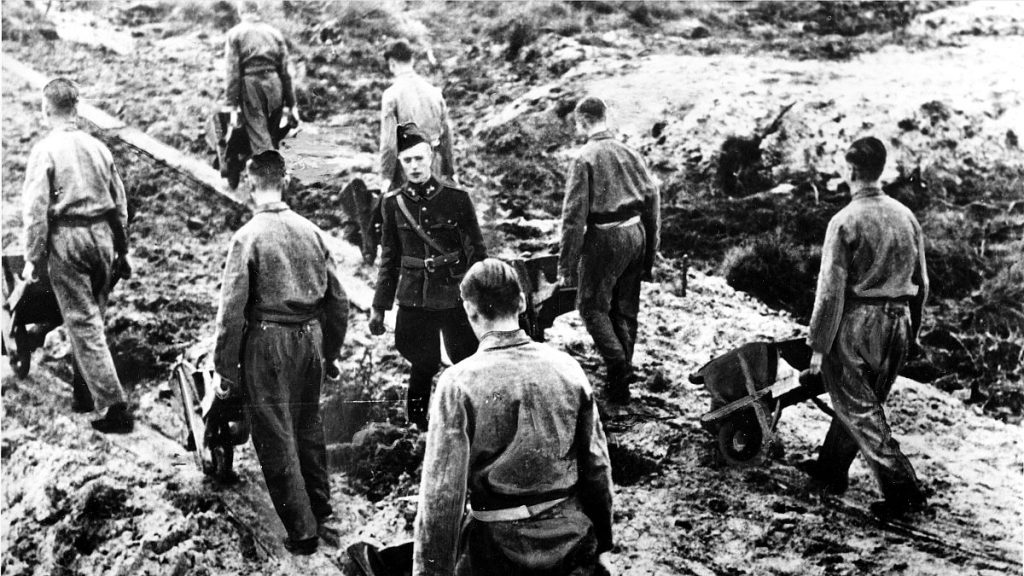Paragraph 1: The Netherlands has unveiled a significant historical resource, a digitized database containing the names of nearly half a million individuals suspected of collaborating with the Nazi regime during World War II. This “War in Court” project, a collaborative effort involving the Dutch National Archives and the Huygens Institute, offers unprecedented public access to records previously only available to researchers in person at The Hague. The database encompasses a vast range of individuals, including those formally charged and convicted, suspected members of Nazi-aligned organizations like the National Socialist Movement (NSB), and even those ultimately cleared of any wrongdoing. This initiative represents a major step towards greater transparency and accessibility to crucial historical documentation, facilitating deeper understanding and analysis of this complex period in Dutch history.
Paragraph 2: The digital archive was created with the financial support of the Dutch Ministries of Justice, Education, and Health, recognizing the importance of preserving and sharing this historical material. The Huygens Institute, instrumental in the digitization process, emphasized the significance of this project for present and future generations. They underscored the challenges of engaging younger generations with historical archives without digital access, highlighting the potential for this online database to bridge that gap. By making these records readily accessible, the institute aims to keep the memory and lessons of the war alive, promoting continued learning from the past.
Paragraph 3: The database comprises records of investigations conducted on over 425,000 individuals, the vast majority of whom were Dutch citizens. More than 150,000 of these individuals faced legal proceedings and subsequent punishments for their alleged collaboration. The archive also includes information on approximately 20,000 Dutch citizens who enlisted in the German armed forces, deemed collaborators by their voluntary service to the occupying power. The inclusion of individuals affiliated with the NSB, the largest Dutch Nazi-sympathizing political party led by Anton Mussert, further expands the scope of the database. Importantly, the archive also documents those who, after investigation, were found innocent of any collaborative activities, reflecting the complexities of establishing guilt and innocence during and after wartime.
Paragraph 4: While the database currently only reveals the names of the investigated individuals, it does not specify the nature of their alleged collaboration or whether they were ultimately convicted. To gain deeper insights into the specifics of each case, individuals must submit formal requests to access the detailed archive files. This approach balances the need for public access with the ethical considerations of privacy and potential sensitivities surrounding these historical records. While the European Union’s General Data Protection Regulation (GDPR) protects the personal data of the living, it doesn’t apply to the deceased, which comprises the vast majority of individuals listed in the database. Nevertheless, the Dutch Data Protection Authority acknowledges the sensitive nature of the information contained within the files, including religious affiliations and political convictions, even for those who are still alive.
Paragraph 5: The release of this database is anticipated to generate significant public discourse and potentially rekindle painful memories of the occupation period in the Netherlands, which lasted from the 1940 invasion until liberation in 1945. The topic of collaboration remains a sensitive and often unspoken aspect of Dutch wartime history, a societal trauma that many have preferred to avoid confronting directly. National Archives director Tom De Smet expressed the hope that this increased access to historical records will help break the prevailing taboo surrounding collaboration, encouraging open discussion and a deeper understanding of this challenging period. The timing of this release coincides with a growing concern about historical awareness, particularly among younger generations. A recent survey by the Claims Conference revealed that a significant proportion of Dutch Generation Z either questions the reality of the Holocaust or lacks knowledge of the Netherlands’ role as a site of Holocaust atrocities.
Paragraph 6: The findings of the Claims Conference survey highlight the importance of initiatives like the “War in Court” database in promoting historical education and remembrance. Despite the concerning statistics regarding Holocaust awareness, the survey also revealed that a majority of Dutch citizens support Holocaust education. By providing access to primary historical documents, the database can contribute to a more nuanced and informed understanding of the complexities of the war period, including the difficult questions surrounding collaboration and resistance. This open access approach can empower individuals to engage directly with historical evidence, fostering critical thinking and encouraging a deeper appreciation for the ongoing relevance of the past. The database serves as a valuable resource for researchers, educators, and the public alike, facilitating a more comprehensive exploration of this pivotal chapter in Dutch history and its enduring implications.














